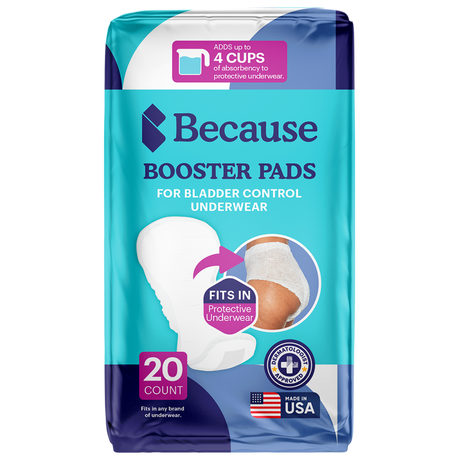Erectile dysfunction (ED) is a common condition that affects many men over the age of 50. It can be a source of frustration and embarrassment, but it's important to remember that you're not alone. In fact, studies have shown that approximately 52% of men between the ages of 40 and 70 experience some degree of ED. Managing erectile dysfunction involves understanding its causes, exploring psychological factors, making lifestyle changes, considering medical treatment options, and exploring natural remedies and supplements. Let's delve into each of these areas to help you take control of your sexual health.
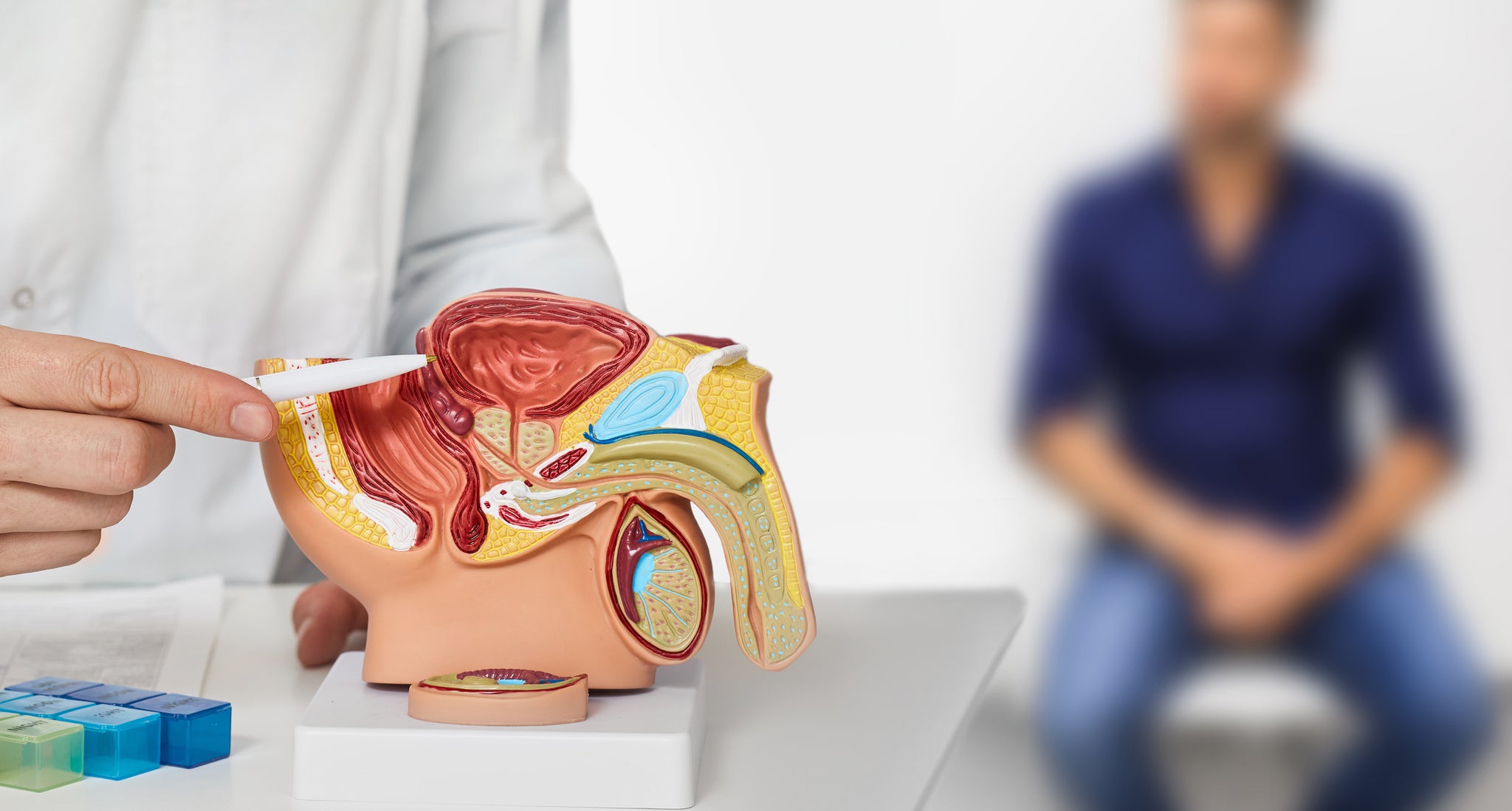
Understanding Erectile Dysfunction
Erectile dysfunction, also known as impotence, is the inability to achieve or maintain an erection that is firm enough for sexual intercourse. While occasional difficulties with erections are normal, persistent problems can be indicative of a more significant issue. To understand the science behind erectile dysfunction, it's important to explore its causes.
Erectile dysfunction is a complex condition that involves a combination of physical and psychological factors. At its core, the process of achieving an erection involves a complex interplay of neurological, vascular, and hormonal factors. When a man becomes sexually aroused, the brain sends signals to the nerves in the penis, triggering blood flow and causing the penis to become engorged with blood. Any disruption in this process can lead to erectile dysfunction.
One of the common causes of erectile dysfunction is chronic illnesses such as diabetes, cardiovascular disease, and hypertension. These conditions can damage the blood vessels and nerves that are essential for a healthy erection. Additionally, obesity can contribute to erectile dysfunction by increasing the risk of developing conditions like diabetes and cardiovascular disease.
Hormonal imbalances can also play a role in ED. Testosterone, the primary male sex hormone, is crucial for maintaining sexual function. Low levels of testosterone can result in a decreased sex drive and difficulty achieving an erection. Certain medications, such as those used to treat high blood pressure or depression, can also have side effects that contribute to erectile dysfunction.
Lifestyle choices can have a significant impact on erectile function. The use of tobacco or alcohol can damage blood vessels and reduce blood flow to the penis, making it difficult to achieve an erection. Psychological factors, such as stress, anxiety, and depression, can also contribute to erectile dysfunction. These factors can interfere with the brain's ability to send signals to the penis, leading to difficulties in achieving and maintaining an erection.
It's important to note that erectile dysfunction is a common condition that affects men of all ages. It is not something to be ashamed of or embarrassed about. Seeking medical help is crucial for diagnosing the underlying causes of ED and finding appropriate treatment options. With the right approach, many men can overcome this condition and regain their sexual confidence.
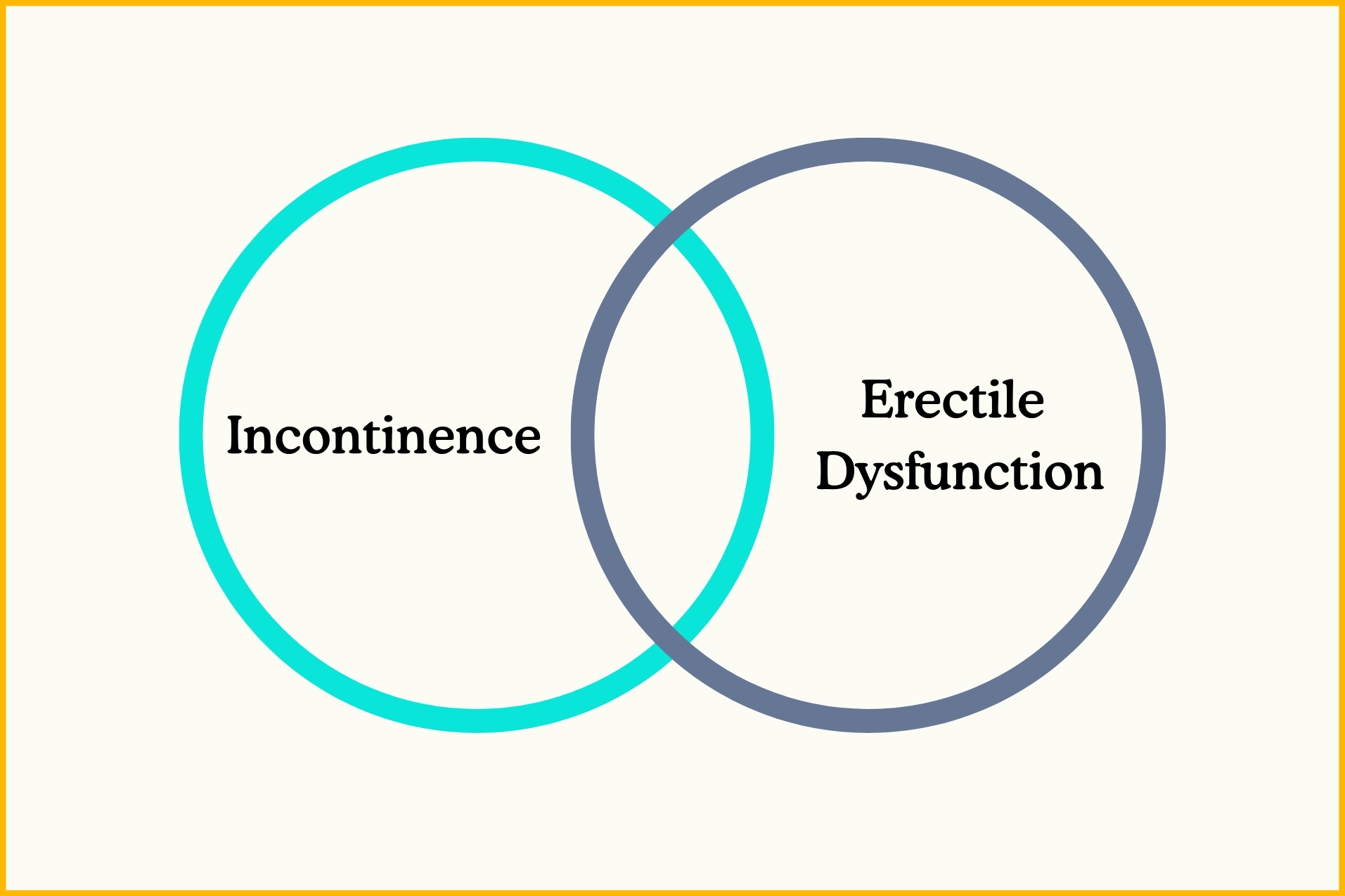
Incontinence and Erectile Dysfunction
11% to 34% of older men report urinary incontinence, however we know that the condition is widely underreported. The prevalence is even higher for those who have had surgery for prostate cancer. 9 out of 10 men who have had a procedure for prostate cancer suffer from incontinence post op. Incontinence and ED share many of the same risk factors such as aging, diabetes, obesity, or certain medical treatments. Additionally, the psychological effects of incontinence can lead to self-esteem issues that contribute to erectile dysfunction. Although these conditions are not directly related, they are often intertwined in some way.

Psychological Factors in Erectile Dysfunction
While the physical causes of erectile dysfunction are often the primary focus, it's important not to overlook the psychological factors that can contribute to the condition. Anxiety and depression, for example, can impact sexual desire and performance.
Anxiety and Erectile Dysfunction
Anxiety, whether related to performance or other personal issues, can interfere with the brain's ability to send the necessary signals for an erection. This can create a cycle of anxiety and difficulty with erections, leading to further frustration and anxiety.
In addition to performance anxiety, there are other types of anxiety that can contribute to erectile dysfunction. Generalized anxiety disorder, for instance, is characterized by excessive worry and fear about various aspects of life. This constant state of anxiety can make it difficult for individuals to relax and enjoy sexual experiences, leading to difficulties with achieving and maintaining an erection.
Furthermore, social anxiety disorder, which involves an intense fear of social situations, can also impact sexual function. Individuals with this disorder may feel extremely self-conscious during sexual encounters, making it challenging to fully engage and experience sexual pleasure.
Depression and its Impact on Erectile Function
Depression can also have a significant impact on sexual function. The feelings of sadness and low self-esteem associated with depression can dampen sexual desire and interfere with the brain's ability to initiate the erectile process.
Moreover, depression often leads to a decrease in overall energy levels, which can further contribute to erectile dysfunction. Fatigue and lack of motivation can make it difficult for individuals to engage in sexual activities and maintain an erection.
It's important to note that the relationship between depression and erectile dysfunction is bidirectional. While depression can contribute to erectile dysfunction, the frustration and self-esteem issues that arise from experiencing ED can also worsen symptoms of depression.
Additionally, the medications commonly prescribed for depression, such as selective serotonin reuptake inhibitors (SSRIs), can have sexual side effects that further exacerbate erectile dysfunction. These medications can decrease libido and interfere with the physiological processes involved in achieving and maintaining an erection.
Overall, understanding the psychological factors that contribute to erectile dysfunction is crucial in developing comprehensive treatment plans. Addressing anxiety and depression through therapy, medication adjustments, and lifestyle changes can significantly improve sexual function and overall well-being.
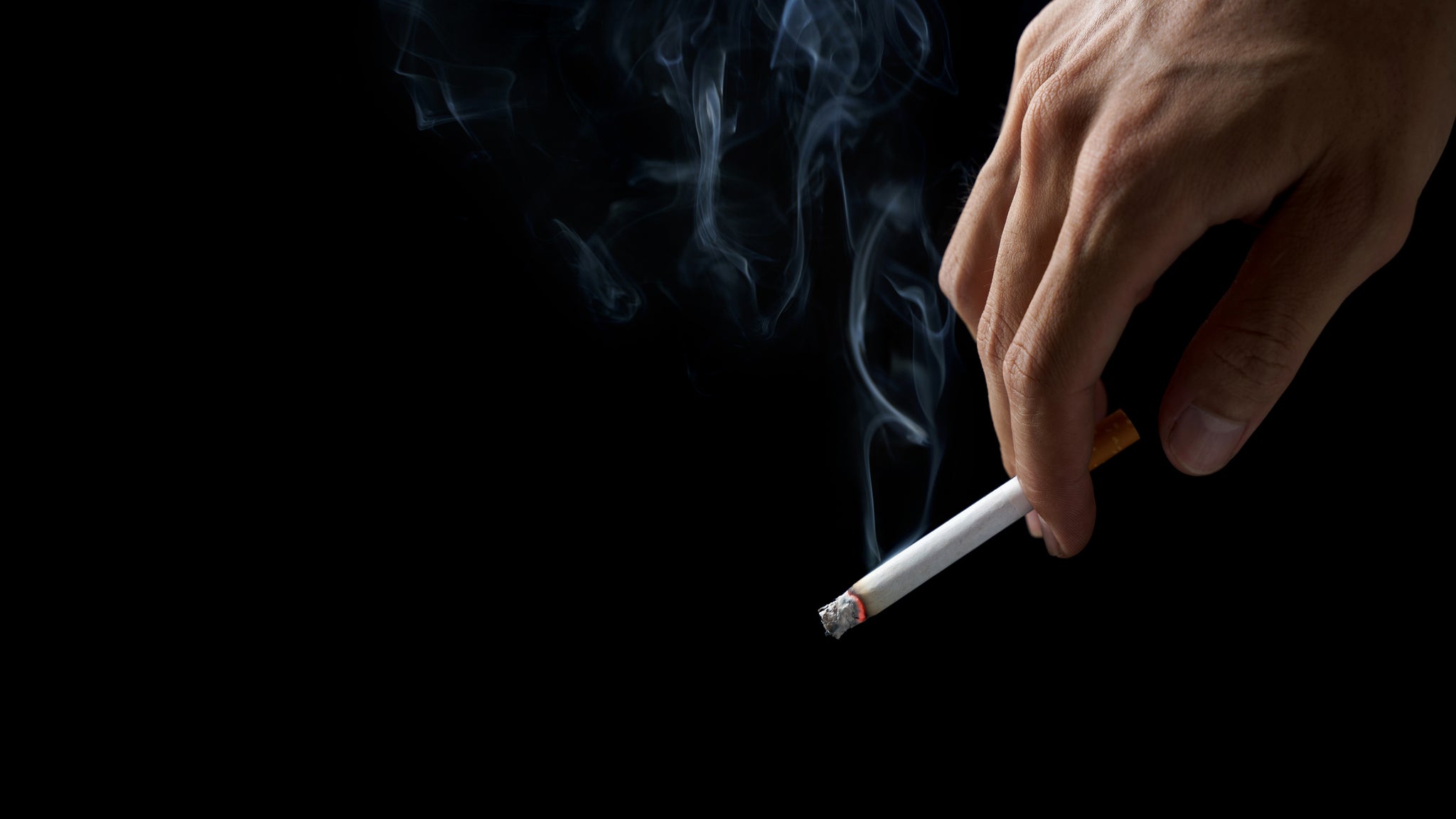
Lifestyle and ED
Adopting a healthy lifestyle can play a crucial role in managing erectile dysfunction. Making changes in diet, exercise, and avoiding harmful habits like smoking and excessive alcohol consumption can have a positive impact on your sexual health.
When it comes to diet, it's not just about eating healthy foods, but also about incorporating specific nutrients that can support erectile function. For example, foods rich in zinc, such as oysters, beef, and pumpkin seeds, can help boost testosterone levels, which is important for sexual desire and performance. Additionally, consuming foods high in omega-3 fatty acids, like salmon and walnuts, can improve blood flow and reduce inflammation, both of which are essential for a healthy erection.
The Role of Diet and Exercise
A healthy diet and regular exercise can improve overall cardiovascular health, which is essential for maintaining erectile function. Engaging in aerobic exercises, such as jogging, dancing, swimming, or cycling, can help strengthen your heart and improve blood circulation throughout your body, including to the penis. This increased blood flow can enhance your ability to achieve and sustain an erection.
Exercise also has a direct impact on testosterone levels. Engaging in strength training exercises, such as weightlifting or resistance training, can stimulate the production of testosterone, which can improve sexual function and libido. Furthermore, exercise can help reduce stress and anxiety and improve self-confidence, which are common psychological factors that can contribute to erectile dysfunction.
Alcohol, Smoking, and Erectile Health
Excessive alcohol consumption and smoking can both contribute to erectile dysfunction. Alcohol acts as a depressant on the nervous system, which can impair the brain's ability to initiate an erection. Additionally, alcohol can disrupt hormone production and decrease testosterone levels, leading to sexual problems.
Smoking, on the other hand, damages blood vessels and restricts blood flow, making it harder to achieve and maintain an erection. The chemicals in cigarettes can cause the blood vessels to constrict, reducing the amount of blood that can flow into the penis. Over time, this can lead to atherosclerosis, a condition where plaque builds up in the arteries, further obstructing blood flow and increasing the risk of erectile dysfunction.
Quitting smoking and reducing alcohol consumption can significantly improve erectile function. Studies have shown that men who quit smoking experience improvements in their ability to achieve and maintain erections. Similarly, cutting back on alcohol or abstaining from it altogether can have a positive impact on overall sexual health. For example, both smoking and alcohol have been shown to exacerbate symptoms of urinary incontinence.
In conclusion, adopting a healthy lifestyle that includes a balanced diet, regular exercise, and avoiding harmful habits like smoking and excessive alcohol consumption can greatly improve erectile function. By taking care of your overall health, you can enhance your sexual well-being and enjoy a satisfying sex life.
Medical Treatment Options for Erectile Dysfunction
If lifestyle changes alone are not sufficient to manage erectile dysfunction, there are various medical treatment options available. These include prescription medications and surgical interventions.
Prescription Medications and their Effects
Oral medications like Viagra, Cialis, and Levitra are commonly used to treat erectile dysfunction. These medications work by increasing blood flow to the penis, making it easier to achieve and maintain an erection. It's important to consult with a healthcare professional before using these medications, as they may interact with other medications or have potential side effects.
Surgical Interventions for Erectile Dysfunction
In some cases, surgical interventions may be necessary to manage erectile dysfunction. Procedures such as penile implants or vascular surgery can help restore erectile function in individuals who do not respond to other treatment options. These procedures are typically considered when all other avenues have been explored.
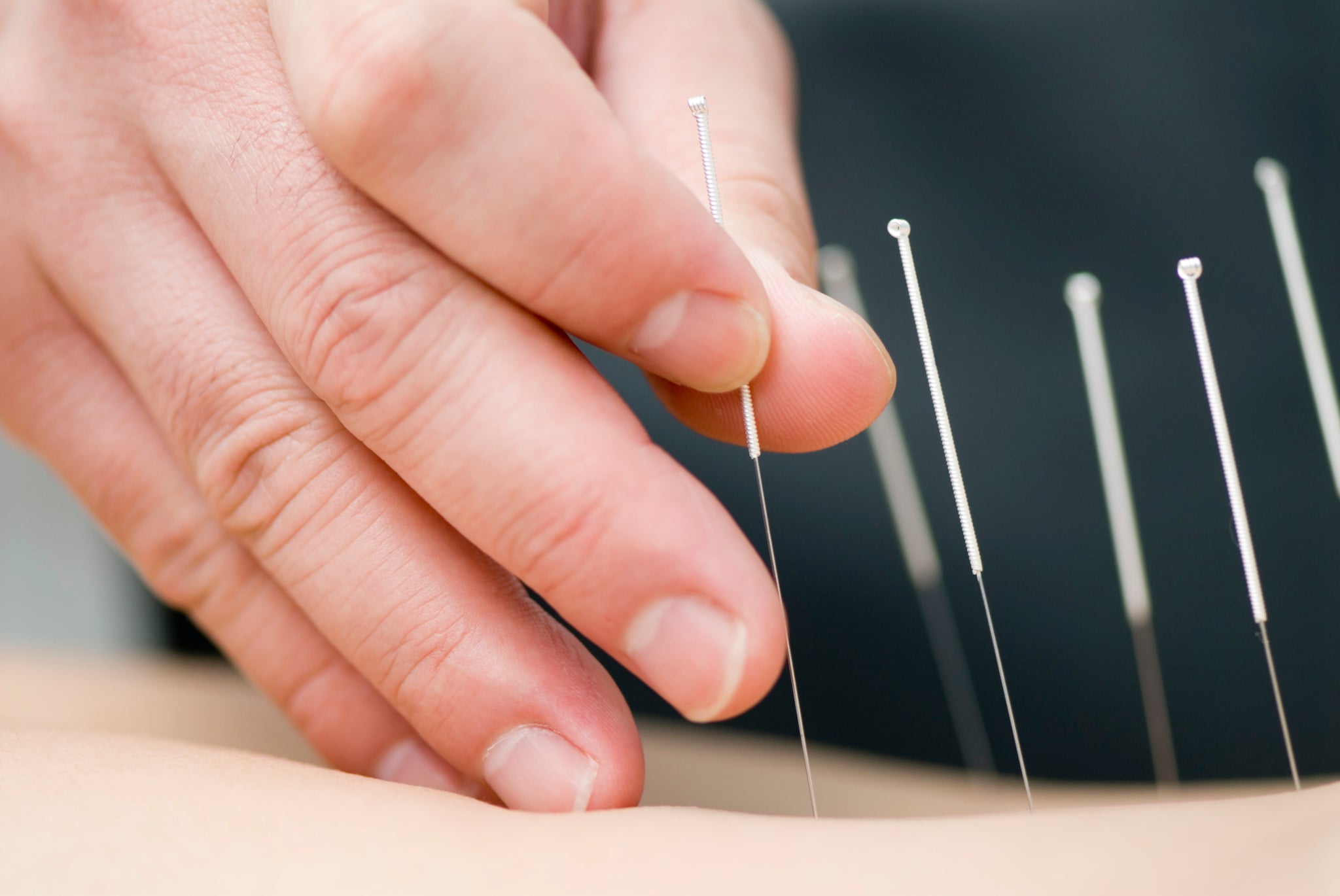
Natural Remedies and Supplements for Erectile Dysfunction
Many men seek natural alternatives to manage erectile dysfunction. While the effectiveness of these remedies may vary, some herbal supplements and alternative treatments have shown promise.
Herbal Supplements and their Potential Benefits
Herbal supplements such as Panax ginseng, Pygnogenol, Preox, Tribulus Terrestris, and L-arginine have been used traditionally to support sexual health. There is some evidence to suggest that they may improve symptoms although the reason why is unclear. However, it's important to note that scientific evidence supporting their effectiveness is limited, and they may interact with certain medications.
Note on supplement and natural remedy regulation:
Herbal supplements and natural remedies are not regulated by the FDA. This means that there is no guarantee that what the manufacturer is saying is in your treatment, is actually in the treatment or that there isn’t something nefarious. Always do your research and look for recent testing results from the FDA. Erectile dysfunction and other sexual performance medications are a frequent target for bad actors.
For a list of 2024 products which the FDA has marked as hiding ingredients, including ones with serious side effects, click here.
The Effectiveness of Acupuncture and Other Natural Treatments
Acupuncture, a traditional Chinese medicine practice, has gained popularity as a potential treatment for erectile dysfunction. While some studies suggest that it may have positive effects on sexual performance, more research is needed to fully understand its efficacy. Other natural treatments like yoga and mindfulness techniques may also have a positive impact on managing ED by reducing stress and improving overall well-being.
In conclusion, managing erectile dysfunction involves a holistic approach that addresses both physical and psychological factors. By understanding the science behind erectile dysfunction, exploring psychological factors, making lifestyle changes, considering medical treatment options, and exploring natural remedies and supplements, you can take proactive steps towards reclaiming your sexual health. Remember, it's important to consult with a healthcare professional to develop an individualized plan that suits your specific needs and circumstances.
Sources:
Lakin, Milton, MD, Wood, Hadley, MD. (2018, June.). Erectile Dysfunction. Cleveland Clinic Center for Continuing Education. https://www.clevelandclinicmeded.com/medicalpubs/diseasemanagement/endocrinology/erectile-dysfunction/
MacMillan, Amanda. (2022, Aug. 19). 14 Must-Know Facts About Male Incontinence. Health. https://www.health.com/condition/incontinence/14-must-know-facts-about-male-incontinence
Urology Care Foundation. (n.d.). Urinary Incontinence. Urology Care Foundation. https://www.urologyhealth.org/urology-a-z/u/urinary-incontinence
Arackal BS, Benegal V. Prevalence of sexual dysfunction in male subjects with alcohol dependence. Indian J Psychiatry. 2007 Apr;49(2):109-12. doi: 10.4103/0019-5545.33257. PMID: 20711392; PMCID: PMC2917074.
Kovac JR, Labbate C, Ramasamy R, Tang D, Lipshultz LI. Effects of cigarette smoking on erectile dysfunction. Andrologia. 2015 Dec;47(10):1087-92. doi: 10.1111/and.12393. Epub 2014 Dec 29. PMID: 25557907; PMCID: PMC4485976.
Mayo Clinic. (2022, Mar. 29). Erectile Dysfunction: Diagnosis & Treatment. Mayo Clinic. https://www.mayoclinic.org/diseases-conditions/erectile-dysfunction/diagnosis-treatment/drc-20355782
Leisegang K, Finelli R. Alternative medicine and herbal remedies in the treatment of erectile dysfunction: A systematic review. Arab J Urol. 2021 Jun 11;19(3):323-339. doi: 10.1080/2090598X.2021.1926753. PMID: 34552783; PMCID: PMC8451697.







